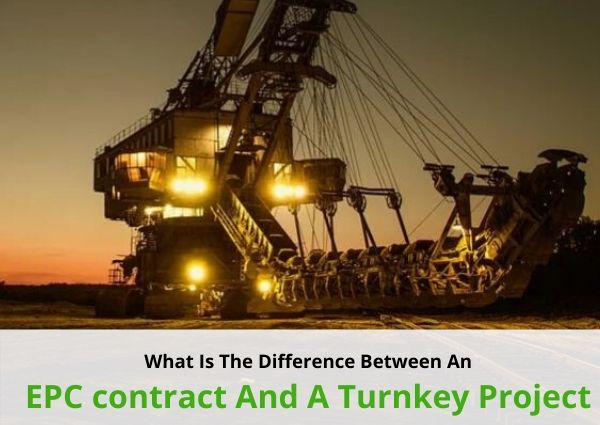What Is The Difference Between An EPC Contract And A Turnkey Project
In the following, we are going to be discussing a very important topic that’s “What is the difference between an EPC contract and a turnkey project?” and will discuss it thoroughly within the article. These jobs for engineering, procurement as well as construction are useful and helpful however they can involve some great differences. It is good to check what differences will be found between EPC and turnkey contracting. The first thing involves the depth of the project that is being handled. An EPC project can involve a contractor working with basic engineering procedures. This can work to help with ensuring that a business will be set up properly with the right engineering plans for great needs.
A turnkey project can involve a lot of specific rules for technical procedures. This is often used to help make it a little easier for a person to handle more types of controls without an issue getting in the way of things. The next difference involves who is accountable for obtaining a design for EPC and turnkey contracting ready. An EPC plan can involve the contractor obtaining a full design of a system ready to where it’ll be more effective and simple to read. Meanwhile, a turnkey process can involve a contractor managing special considerations for handling property and the contractor designing things primarily based only on the kind of specifications that come with the property.
There is also the point regarding the contractor having to work with assigning the correct individuals for the construction process. An EPC method can involve that contractor working to get another party to get the startup construction method handled. The turnkey process can involve the contractor being totally responsible for every single part of what’s going on here. This is often used to help make it a little easier for a property to be arranged as carefully as possible for getting engineering plans ready.
The interesting point regarding obtaining EPC as well as turnkey contracting plans going comes from how they’re both ones that work with getting completely different sorts of procedures to work with different costs in mind. For this top builders in Gurgaon are doing great work.
However, the entire price of getting EPC and turnkey projects contracting India ready should be the same regardless of the kind of control that’s being handled in the process. This is a very interesting point that makes it a little easier for anyone to get contracting functions handled for all kinds of business purposes around India. The differences that come between EPC and turnkey projects contracting are a great point that has to be seen when trying to find ways of how to get completely different types of procedures handled. This is used as a means of helping to see how it works and whether or not a person is going to be controlled as well as it can for the best possible needs that a business will have.
From The Role & Responsibility Point Of View
Turnkey Projects: you can simply turn the key and start using the facility. So it indicates the contractor scope includes all the activities and facilities required to begin operation on one point responsible basis.EPC: EPC indicates a contractor is accountable for the Engineering, procurement, and construction of a particular facility/work awarded to him
For instance: A hotel project awarded on a turnkey basis means that the contractor is accountable to complete/entire all activities leading to the final/end operation level (handing over to the operation team). You can’t divide this project into separate activities such as Civil, MEP, etc. as well as an award on a turnkey basis to completely different contractors. Whereas, on an EPC, you can award solely MEP works on EPC or Sewage Treatment Plant (STP) work on EPC.
From The Risk Point Of View
Turnkey Projects: an employer will do engineering (full or partial) and appoint a contractor to execute the work on a turnkey basis. Here, the employer can commit to taking additional risks by doing engineering or procurement or both.
EPC: an employer doesn’t need to take any risk in respect of a specific work (like sewage Treatment Plant example given above). So he wants to keep all 3 components in the scope of one contractor. Any failure due to engineering or procurement or construction can rest with the contractor. Also, variations to the Contract will be minimum in regards to an EPC contract.
From An Execution Point Of View
Turnkey Projects are the most popular where many activities are involved. The single-party reduces coordination efforts with several contractors that are required otherwise. EPC: is most popular where complicated engineering or proprietary technology is involved like oil & gas and process plants. Essentially an EPC project is the same as a turnkey project and combined called an EPC turnkey project.
An EPC contract encompasses or contains the E (Engineering or Design), P (Procurement) as well as the C (Construction) which is the entire/complete project from concept to commissioning (i.e. turnkey). But, EPC is a really broad as well as sometimes wrongly used term. Few projects may be EPCM where solely the design, procurement, as well as construction management (not the actual/real construction part, just its management). A few times even simply individual portions of a project such as only Engineering, or only procurement or construction may be handed to a particular or specific company.
Therefore if all components E, P & C are awarded to the same company, it is, in essence, an EPC turnkey project.

